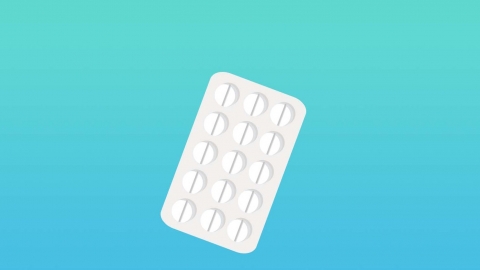What are the risks and side effects of emergency contraceptive pills?
Generally, common emergency contraceptive pills include mifepristone tablets, levonorgestrel tablets, and norethindrone tablets. Their potential risks and side effects include menstrual disorders, nausea and vomiting, ovulation abnormalities, breast tenderness, headache, and dizziness. It is recommended to use these medications only under medical supervision. A detailed explanation is as follows:

1. Menstrual Disorders
Emergency contraceptive pills contain high doses of progestin, which interfere with the hormonal regulation of the hypothalamic-pituitary-ovarian axis. They inhibit the secretion of gonadotropin-releasing hormone, disrupt ovarian ovulation and hormonal secretion cycles, leading to irregular menstrual cycles and altered menstrual flow. These disruptions may persist for several months.
2. Nausea and Vomiting
The hormonal components of the drug irritate the gastrointestinal mucosa and interfere with neural regulation and peristaltic rhythm. This causes abnormal contractions of gastrointestinal smooth muscles and affects the secretion of digestive fluids, resulting in gastrointestinal reactions such as nausea and vomiting within a few hours after taking the medication. The severity of these reactions varies among individuals.
3. Ovulation Abnormalities
The high-dose progestin in emergency contraceptives exerts negative feedback inhibition on the hypothalamic-pituitary-ovarian axis, reducing gonadotropin secretion and interfering with follicular development, maturation, and the ovulation process. This may lead to disordered ovulation timing or even ovulation suppression, affecting fertility.
4. Breast Tenderness
The large amount of progestin in the drug alters the balance of estrogen and progesterone in the body. Progesterone stimulates breast tissue proliferation, causing breast tissue congestion and edema, which may lead to breast tenderness a few days after taking the medication. This discomfort may persist for some time due to the breast tissue's response process.
5. Headache and Dizziness
The hormones in emergency contraceptives affect cerebral vascular regulation and neurotransmitter balance. They alter cerebral vascular tone, leading to hemodynamic changes that cause headaches, and disrupt neurotransmitter levels such as serotonin, resulting in symptoms such as dizziness, fatigue, and drowsiness, which may impact daily life.
In daily life, to reduce the risks and side effects associated with emergency contraceptive pills, it is recommended to use regular contraceptive methods whenever possible, such as condoms, oral short-term contraceptives, or intrauterine devices (IUDs).




